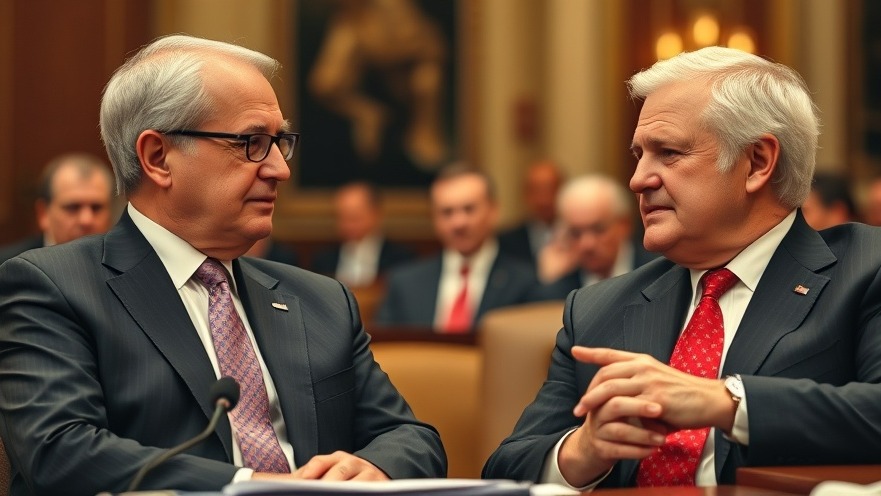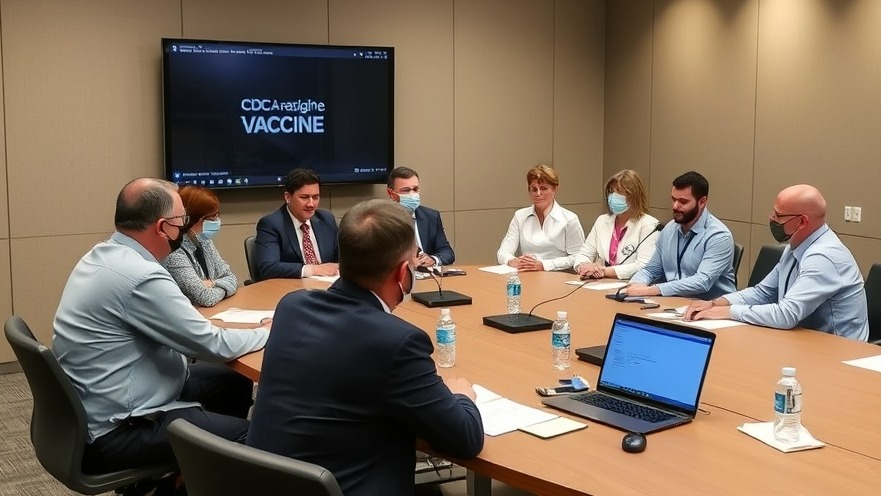
RFK Jr.'s MAHA Report Sparks Controversy
In a striking admission during a recent House hearing, Health Secretary Robert F. Kennedy Jr. declared that he did not fact-check his "Make America Healthy Again" (MAHA) report before it was published. This revelation comes in the wake of an investigation that uncovered multiple non-existent sources cited within the report, raising questions about the integrity of the document and the leadership at the Department of Health and Human Services (HHS).
Debate on Accountability in Medical Reporting
The heated exchange between RFK Jr. and Democratic Representative Raul Ruiz highlighted the potential ramifications of such oversight. "Did you read the report and fact-check its sources prior to publication?" Ruiz asked, to which RFK Jr. responded candidly, "I did not fact check." This exchange not only reflects on Kennedy's leadership but also on the reliability of health reports that inform public policy and patient care.
Implications for Health Practices and Patient Trust
For concierge medical practice owners, this incident raises significant concerns regarding the accuracy of health-related information and the trust vested in authorities. When health reports circulate that include dubious data, it undermines the credibility of healthcare professionals and can result in skepticism from patients who wish to trust their providers.
As future stewards of health policy, it is imperative for practitioners to remain diligent not only in their patient interactions but also in understanding the research exploited to back health recommendations. This calls for creating a culture of accountability where rigorous verification of sources is standard practice.
The Human Cost of Misinformation
As a Licensed Clinical Psychologist, my focus on communication in healthcare settings emphasizes the impact of misinformation on patient relationships and mental wellness. When inaccurate data filters through public health declarations, it can disrupt the trust patients have in the healthcare system, leading to confusion, anxiety, and ultimately poorer health outcomes.
Integrating transparent communication strategies in your practice can enhance your rapport with patients. This includes educating them about the importance of evidence-based medicine and how to critically assess health information. Being a reliable source for your patients places you in a pivotal position to advocate for their well-being, especially amidst widespread misinformation.
Actionable Insights for Concierge Practices
Concierge practices stand to benefit from leveraging the lessons learned from the MAHA report controversy. Here are a few actionable insights:
Commit to Evidence-Based Practices: Regularly review and reinforce the importance of basing medical advice on credible, peer-reviewed studies. Establish a protocol for fact-checking before disseminating information to patients.
Engage in Continuous Education: Regularly update your knowledge and skills based on the latest research. Hold workshops or discussions with your team focusing on critical appraisal of literature.
Enhance Patient Communication: Develop tools that help patients critically analyze health information they encounter. Providing them with clear guidance can strengthen their trust and connection with your practice.
Conclusion
The recent scandals highlighting lapses in factual reporting underscore the necessity for health practitioners to practice diligence, integrity, and transparency in all communications. As the landscape of healthcare continues to evolve, taking proactive steps to ensure data integrity will not only enhance your practice's reputation but also restore patient confidence in the healthcare system. In today’s world where misinformation can spread like wildfire, it’s essential to be the beacon of truth for your patients.
Take action in cultivating a fact-driven approach in your practice today. Educate yourself, your team, and your patients about the significance of rigorous fact-checking and responsible communication in healthcare.
 Add Row
Add Row  Add
Add 






Write A Comment